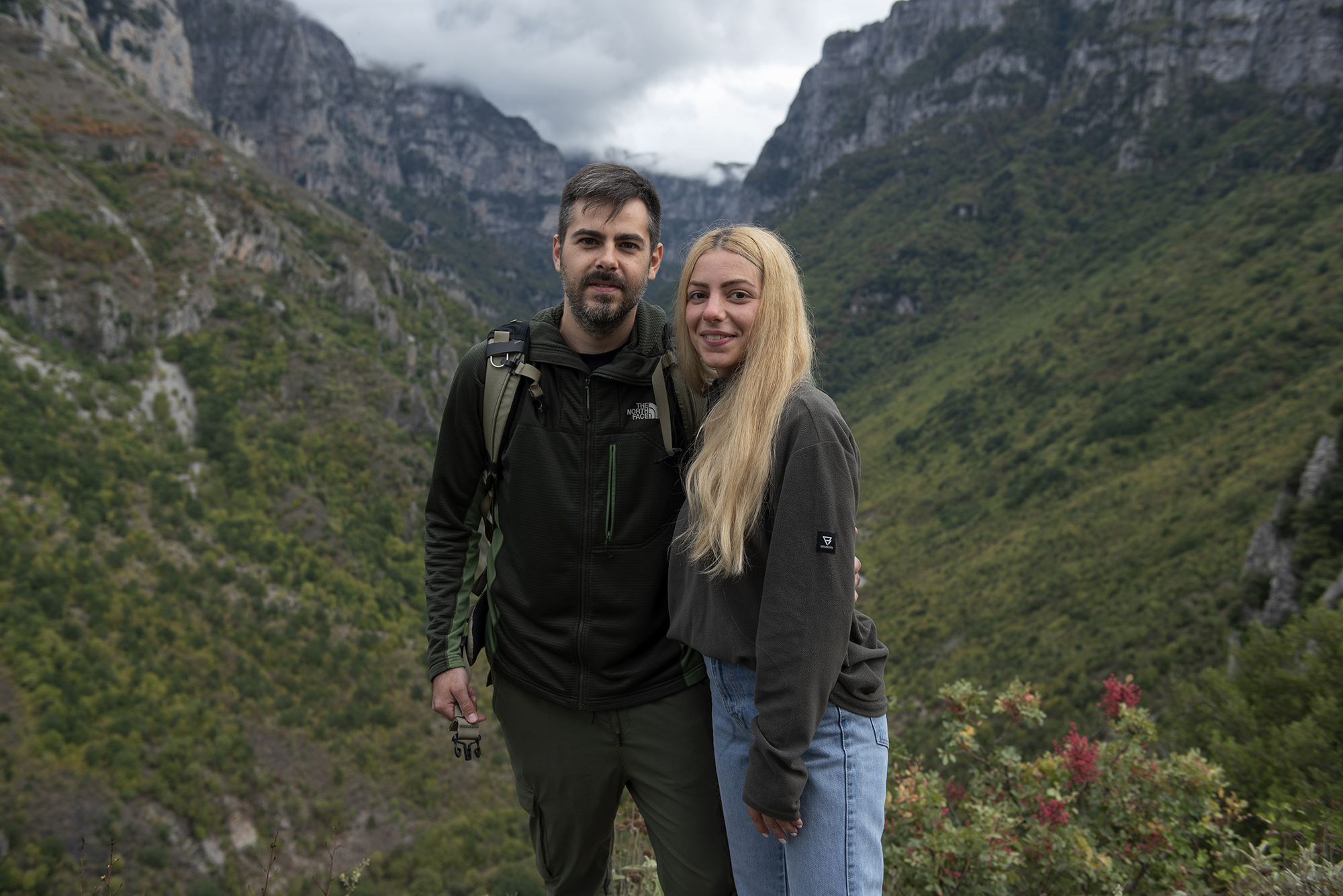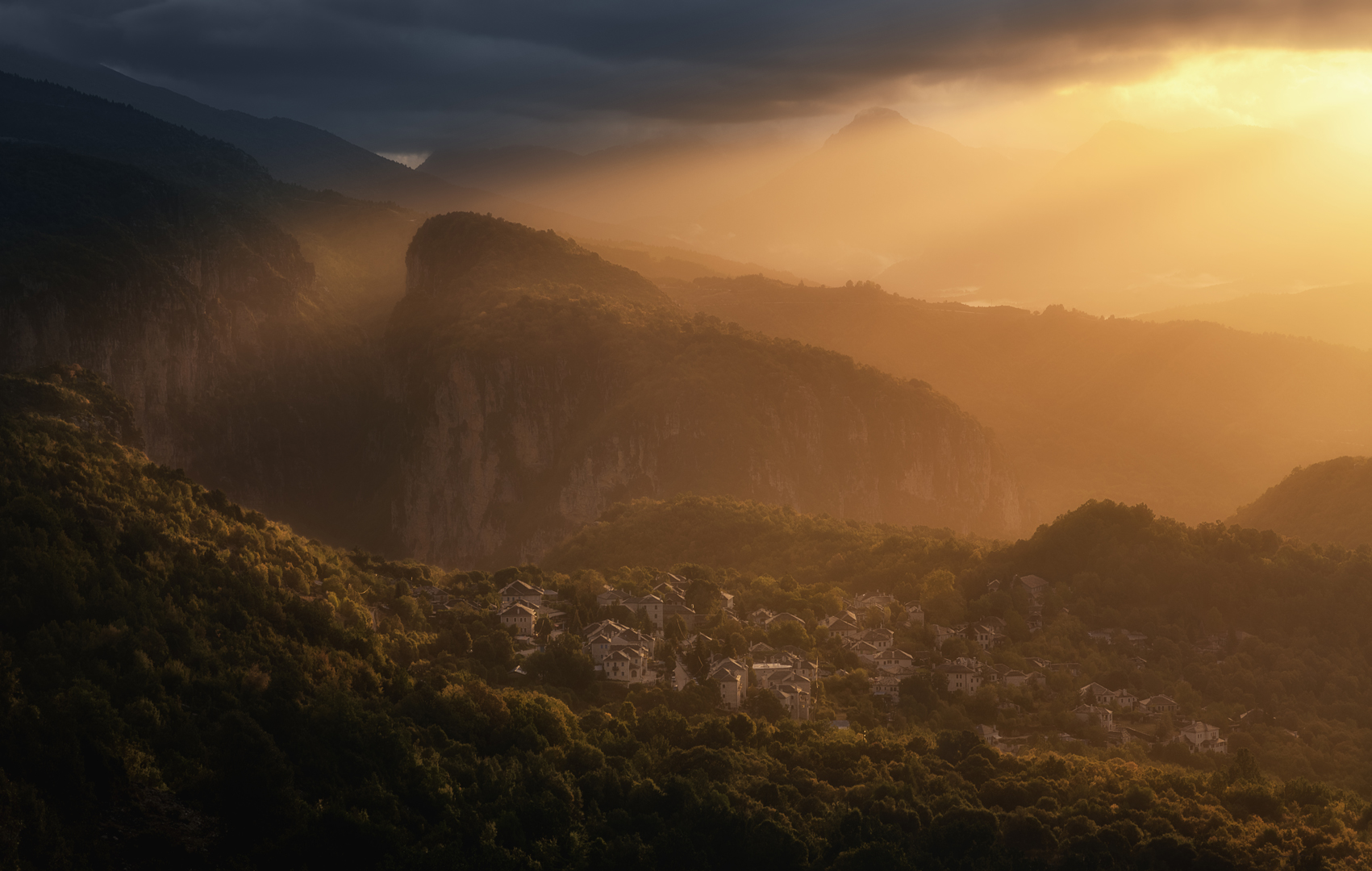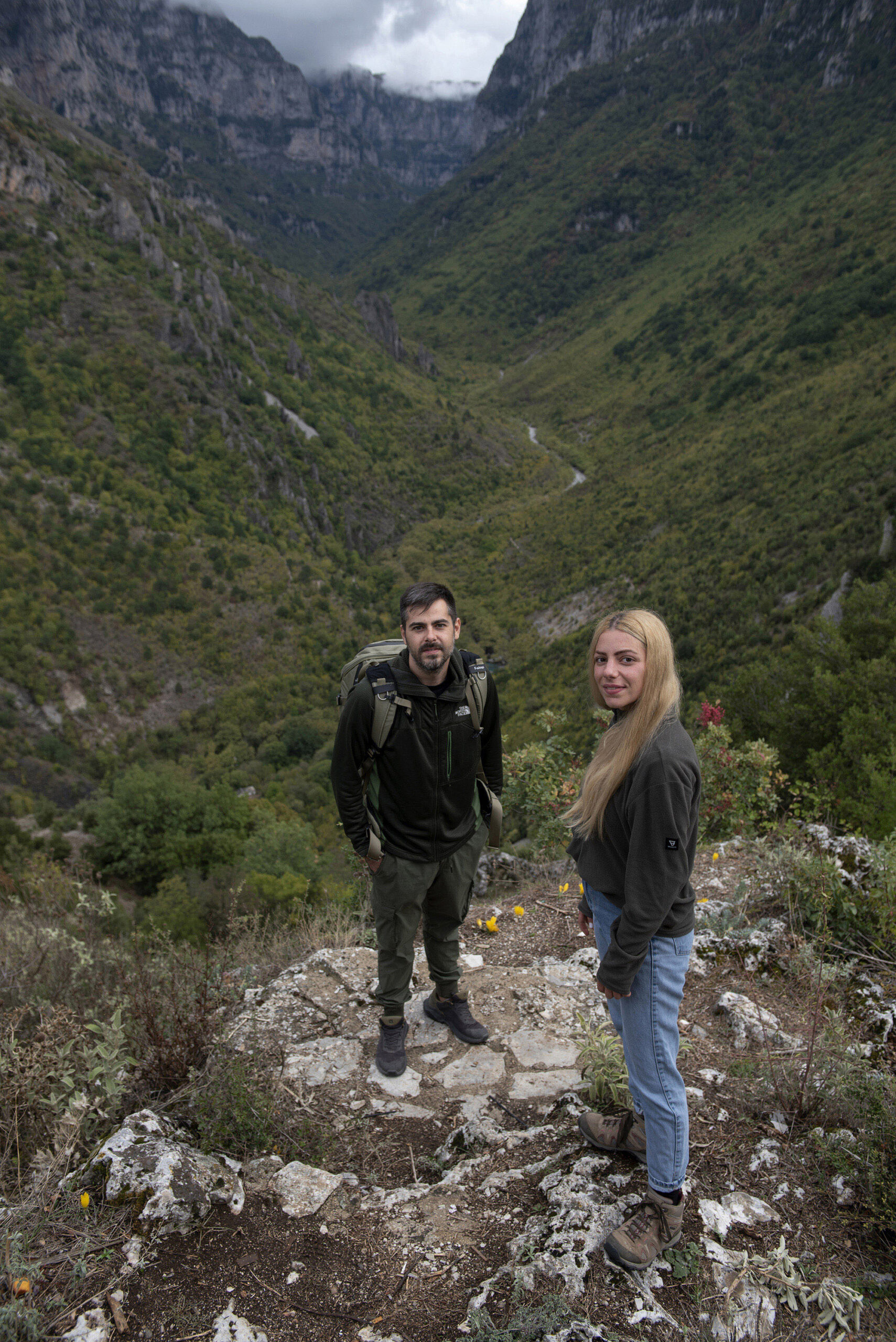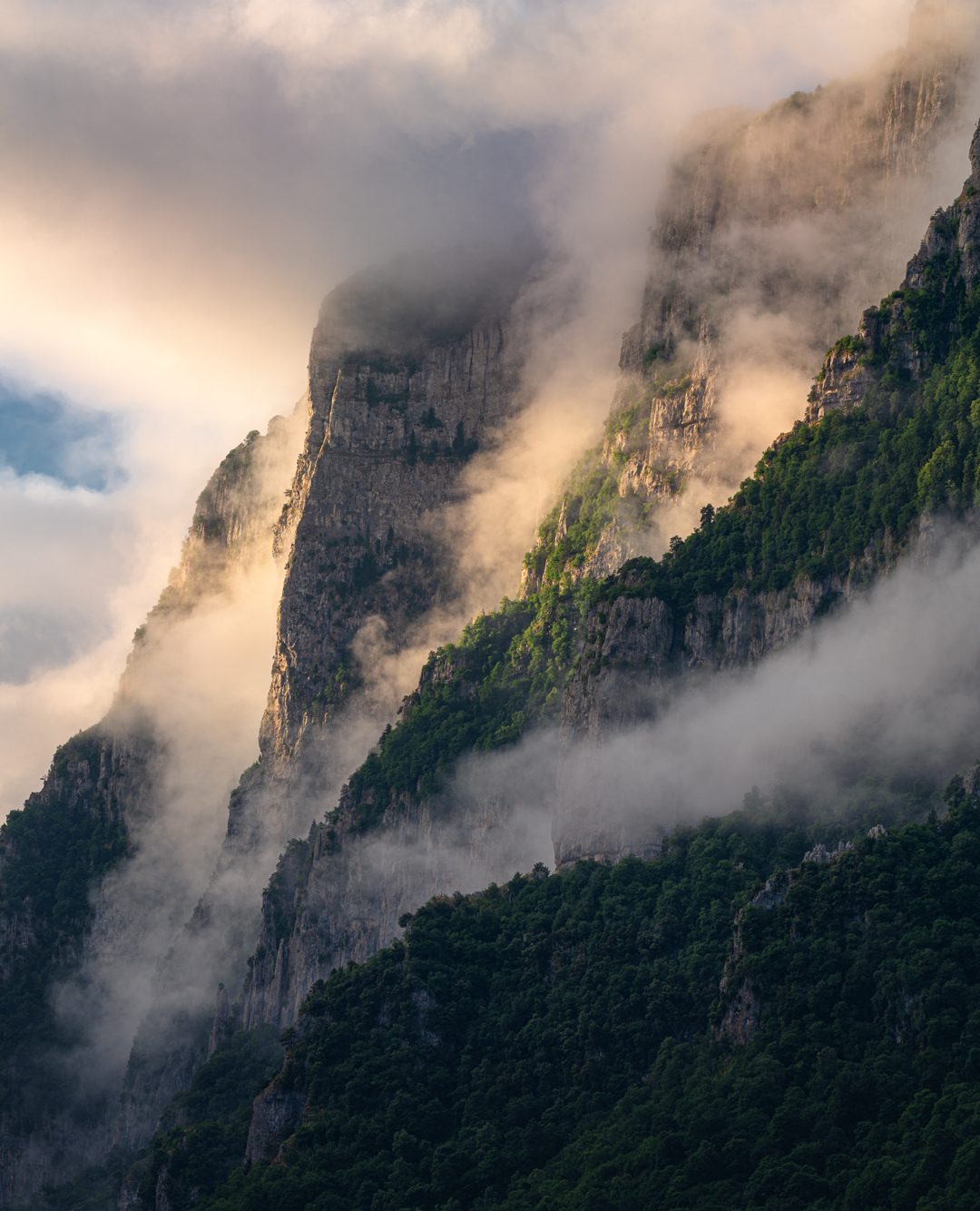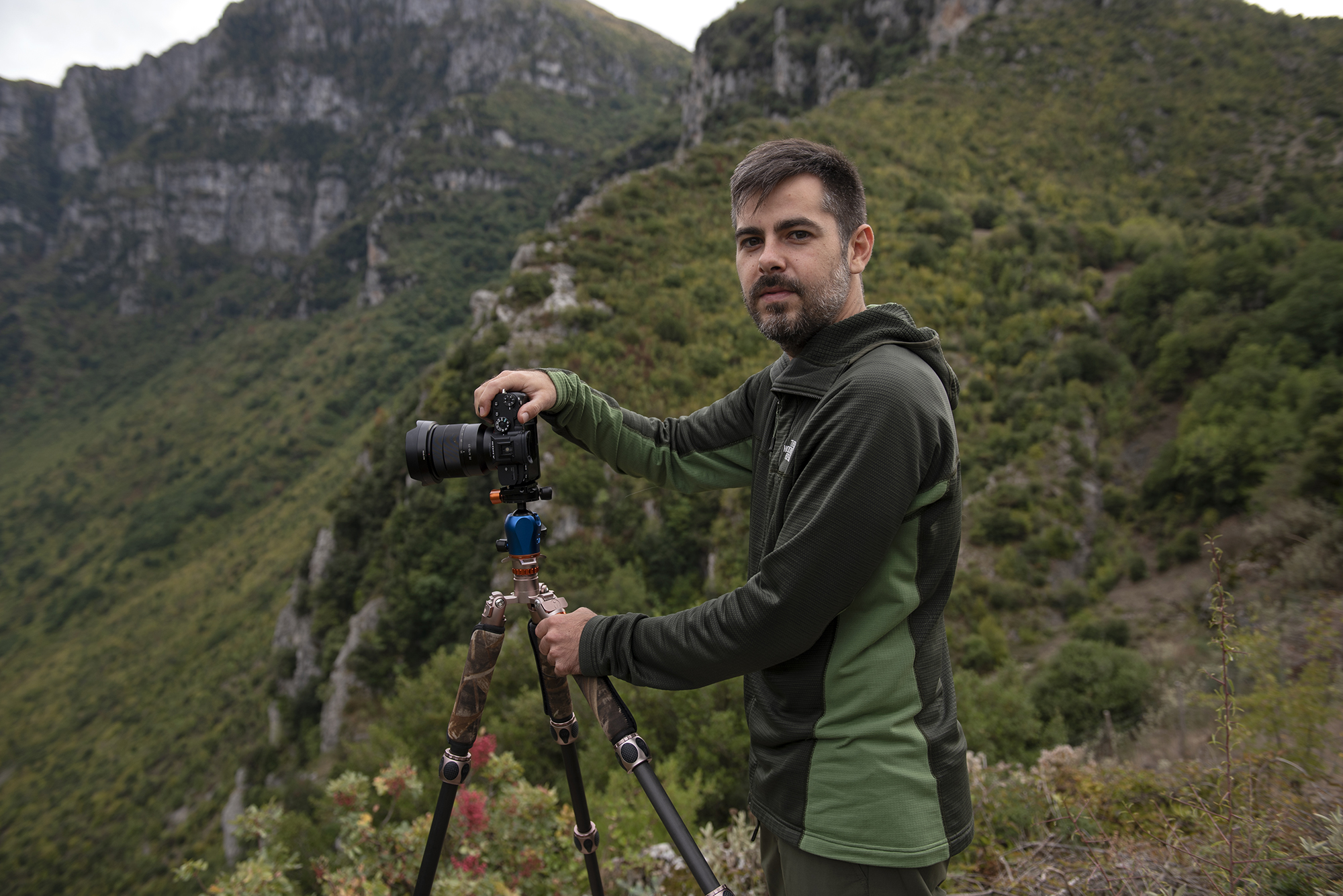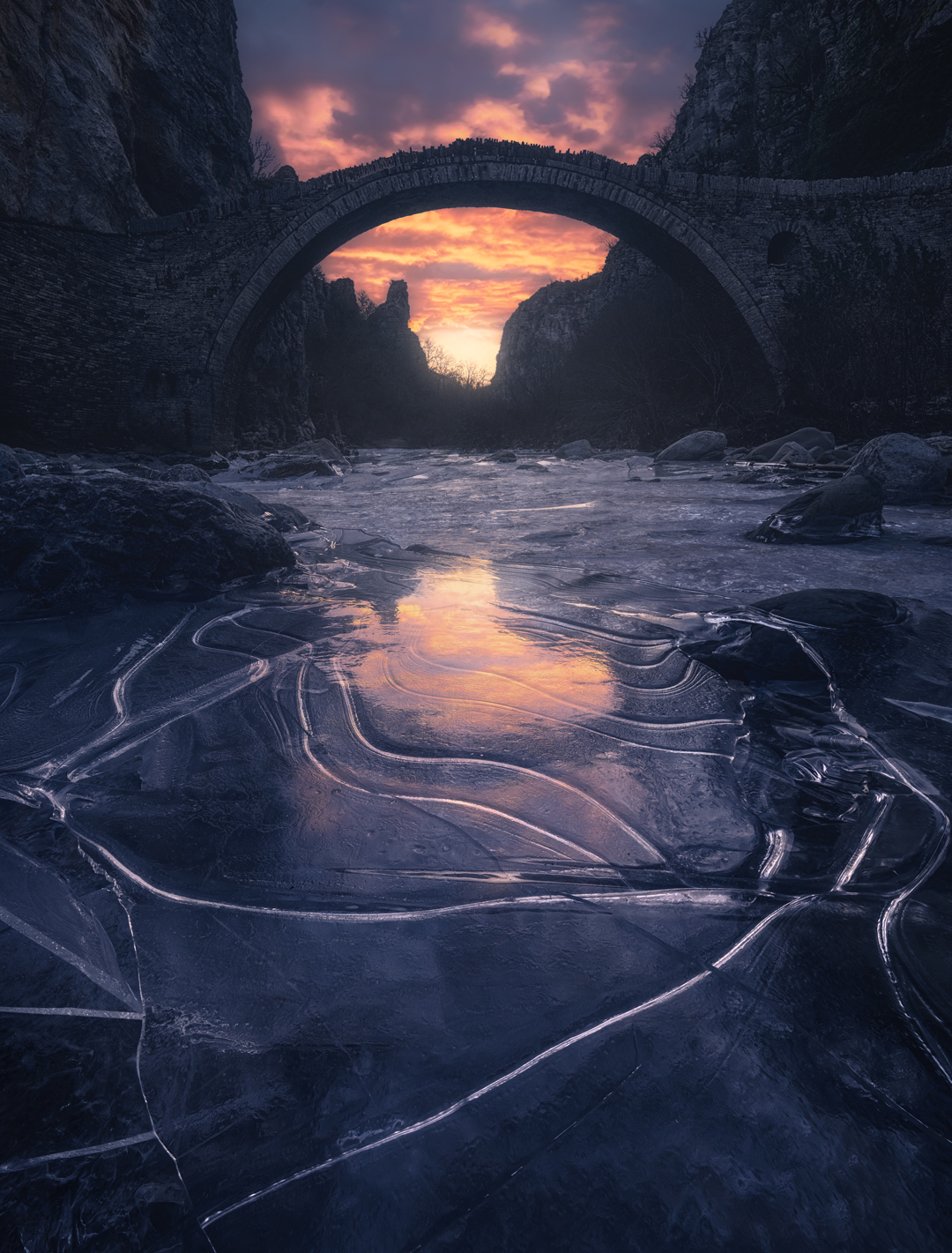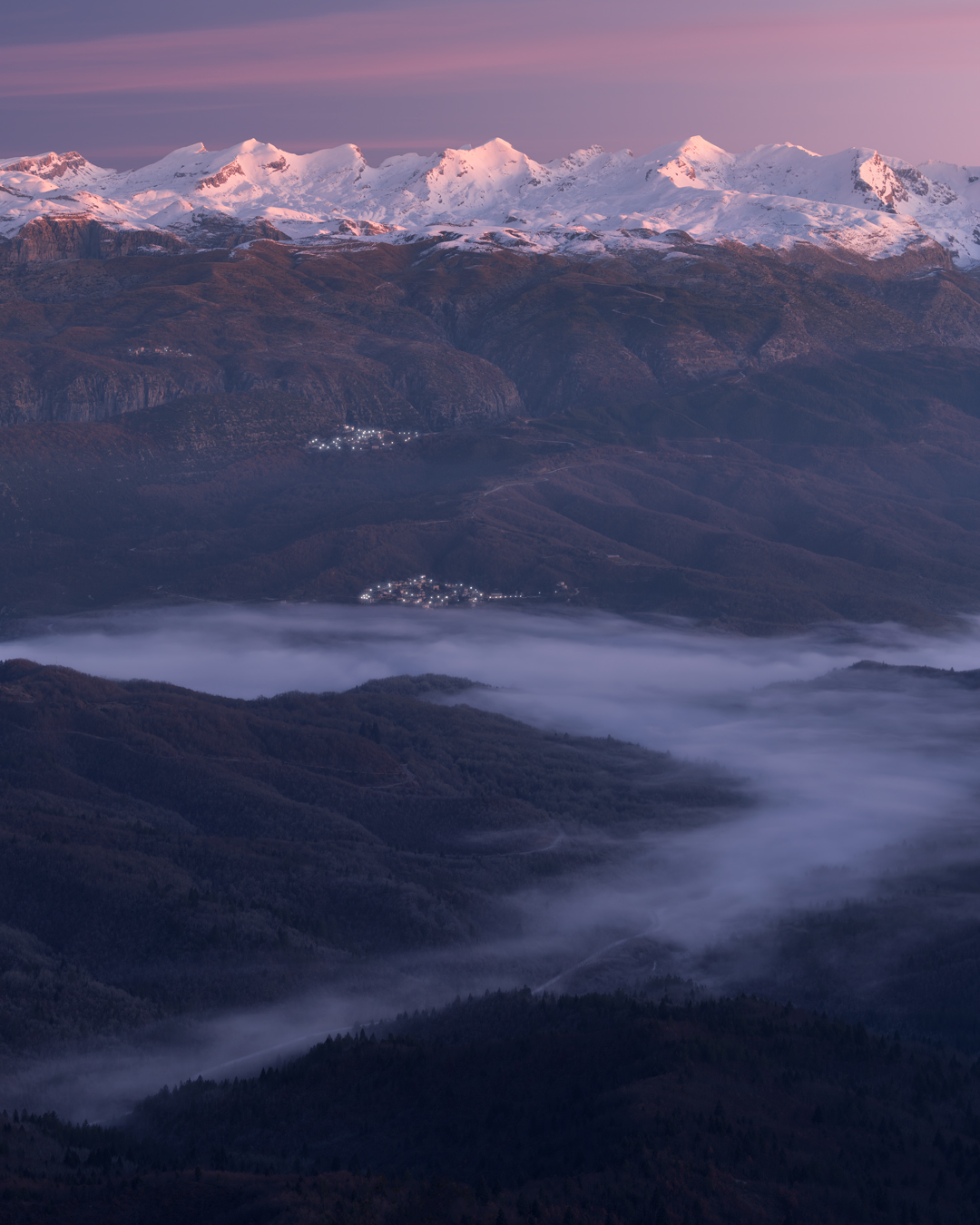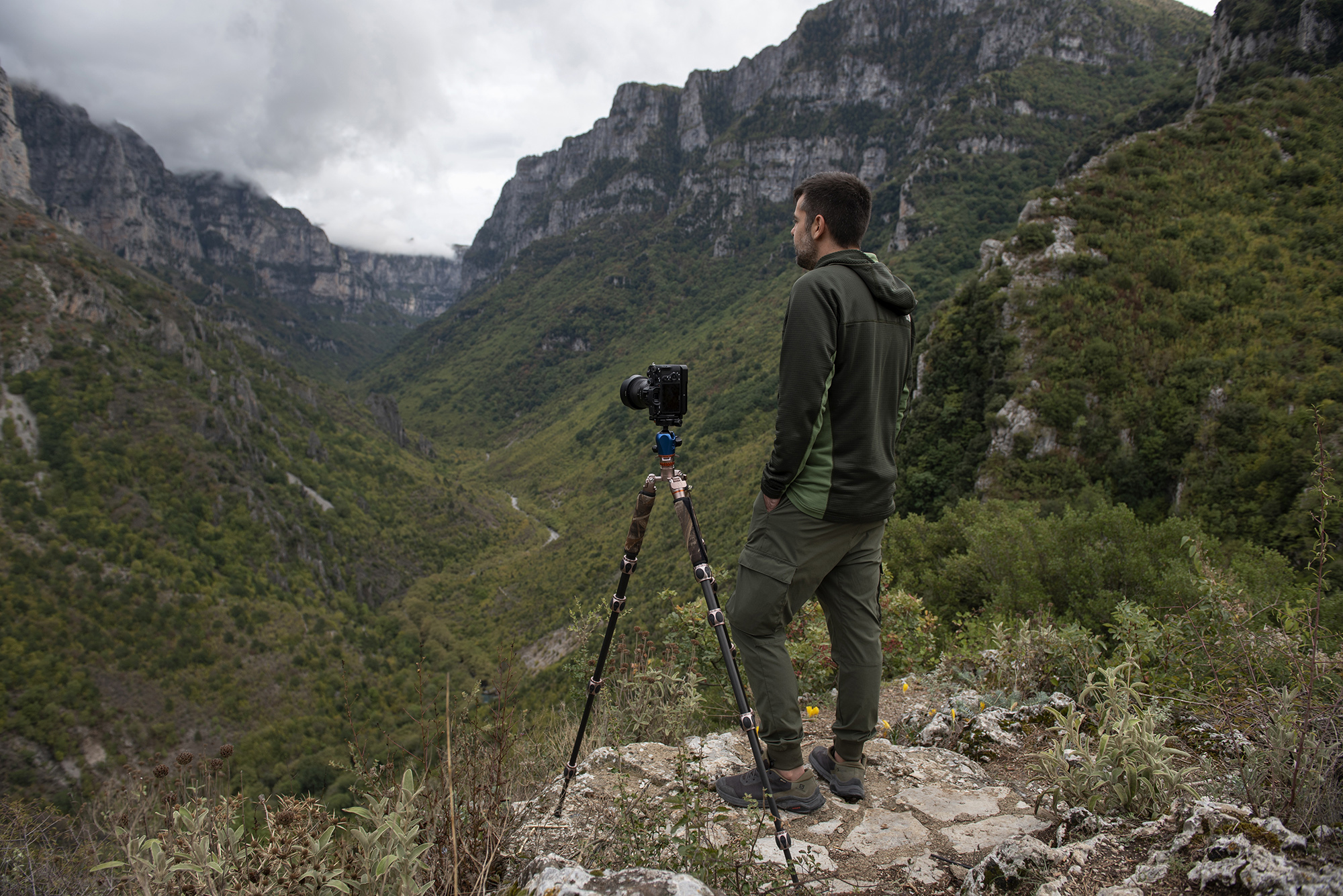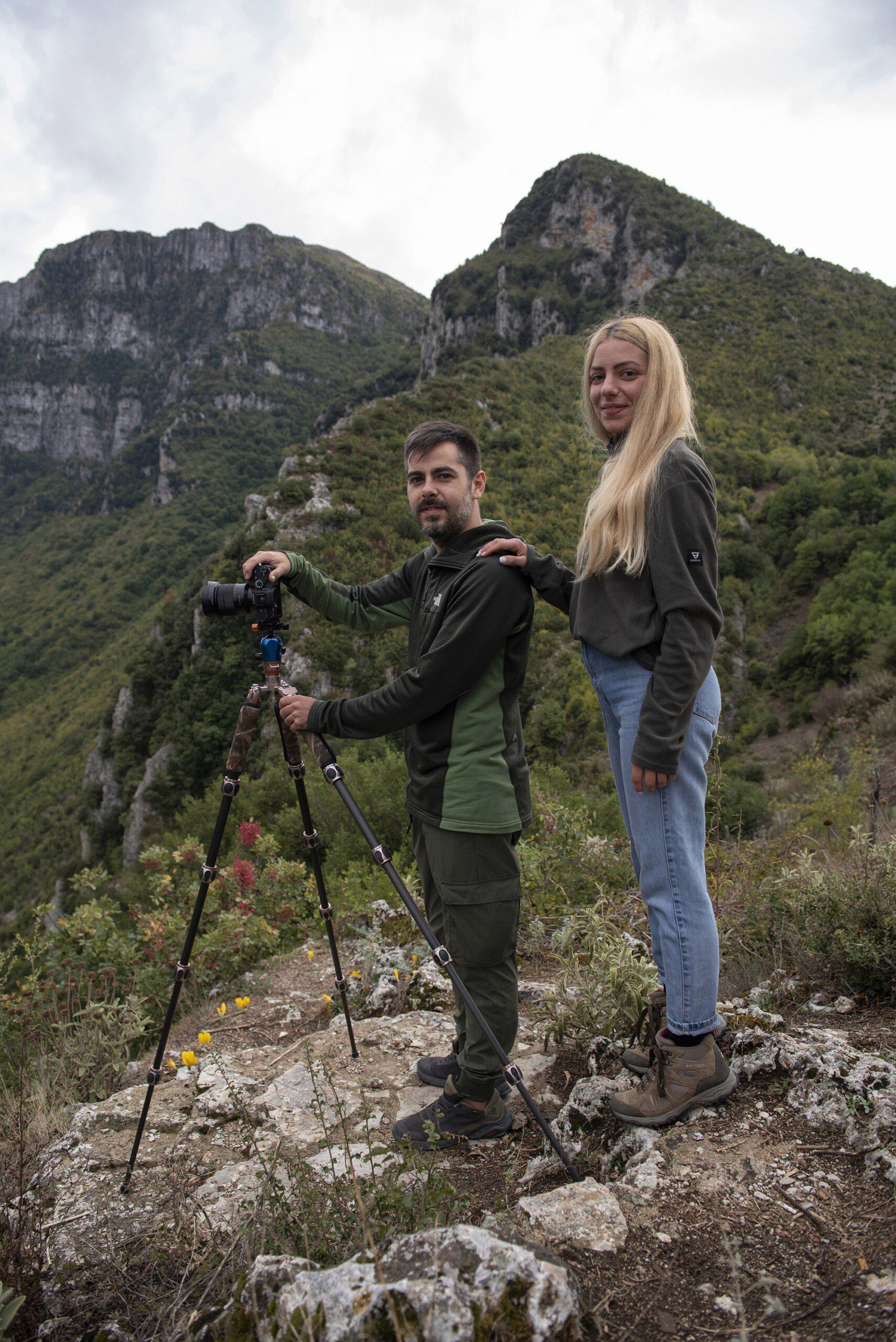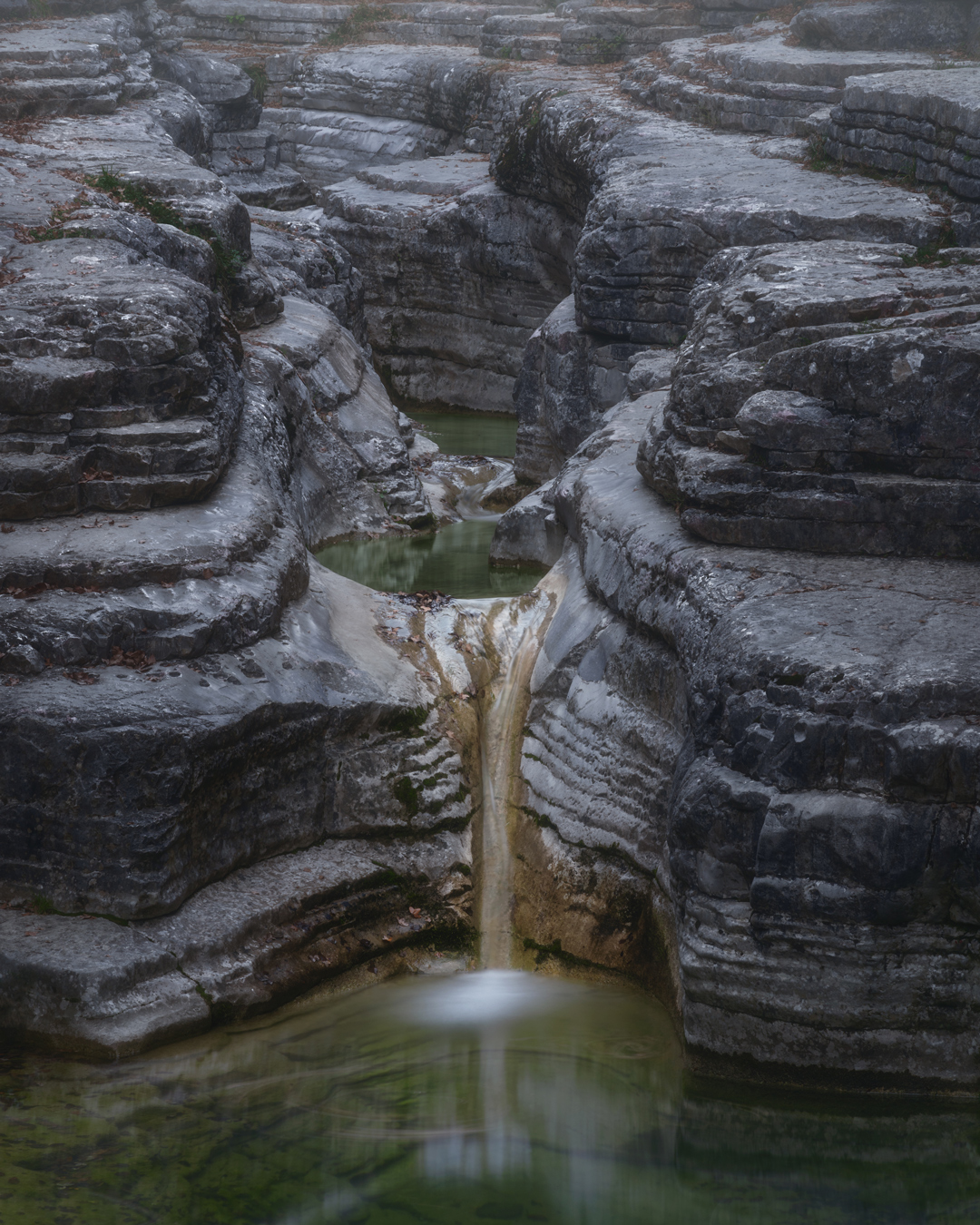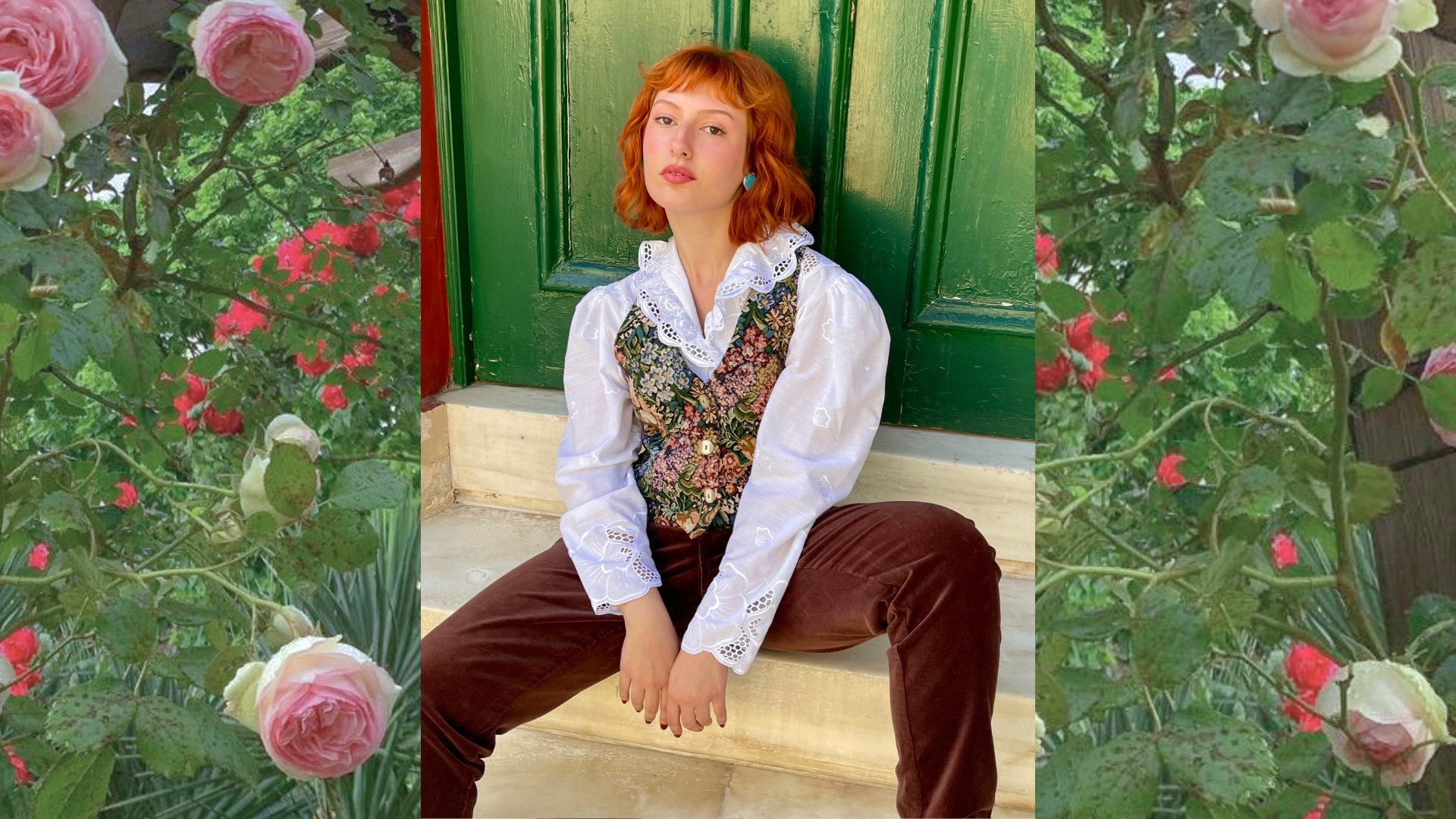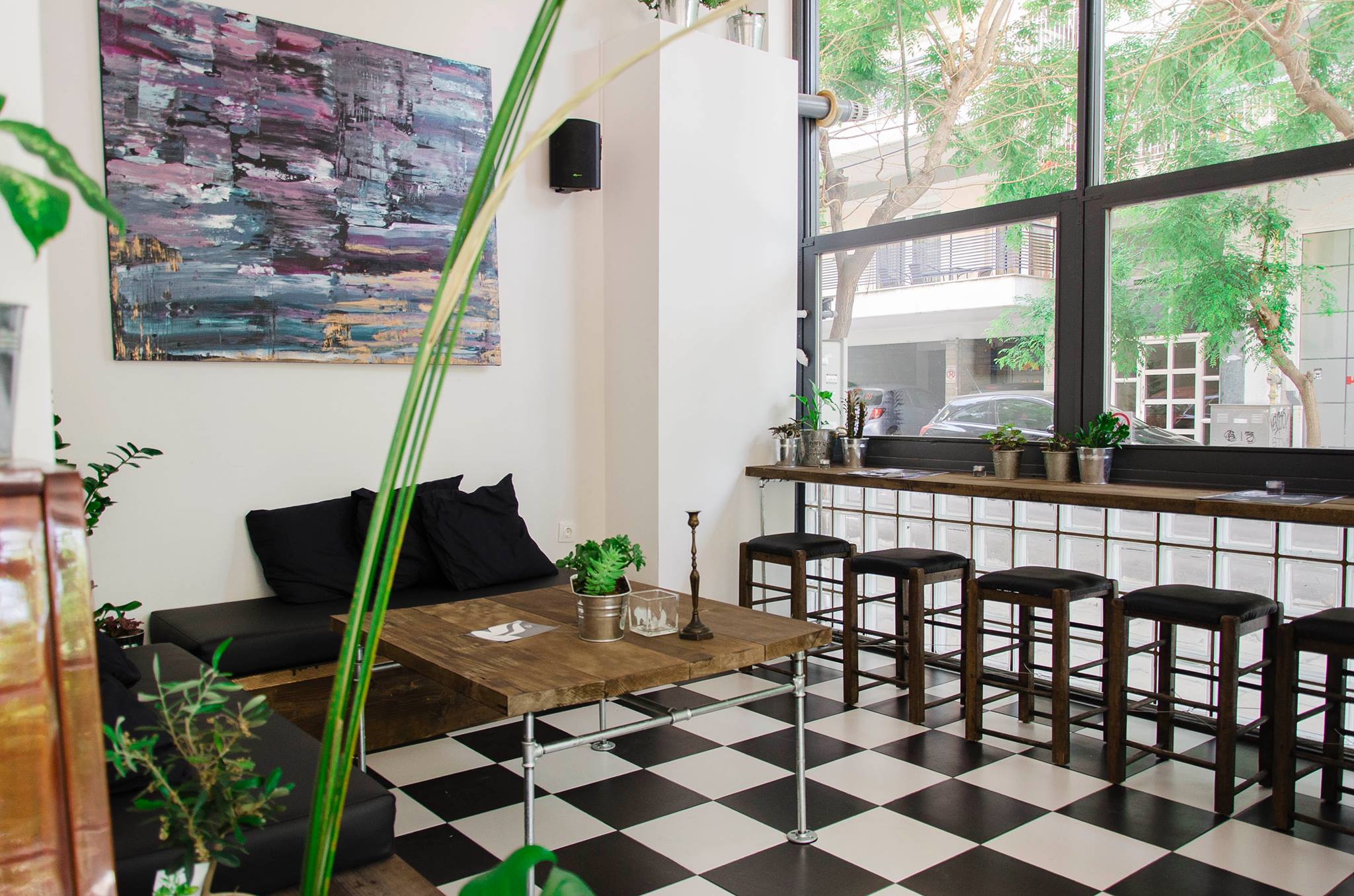Zagori: how would it be to call such a place your home? Living in Zagori may be paradise for a landscape photographer, but we can’t say that the transition from the big city to a village with only a few residents is easy.
Working away from the busy city may be something many wish for, but still, making such a decision is not easy. Alexandros Malapetsas and Katerina Fragkala saw things in a different light and quickly realised that life in Athens didn’t suit them. And what did they do about it? They left.
We met with them in Zagori, on an October evening. We had spoken quite a few times on the phone, and I had already understood that moving away was a conscious decision. “We are not from these places, we didn’t know anyone here, but we started considering how our life would be here,” Katerina tells me when we talk about what made them choose Zagori. “There was a job opening at a popular hotel in the area. We didn’t waste any time, and I made an appointment for an interview.” Alexandros is a landscape photographer. “I can’t count the times I’ve come across something that made me scream in photographic excitement just 10 minutes away from my home. Endless slopes ahead of you as the sun rises, morning fogs covering and hugging the trees, colours and shapes that make you wonder how much beauty nature contains even in the smallest spaces.” His answers are more artistic, revealing the artist’s sensitive view, and, at the same time, a person’s utter certainty about what he wants and how he can claim it. It’s a conversation in which thoughts most people living in the big city have had come up. However, each person deals with these thoughts differently. Let’s take a look at our conversation that took place with the gorge of Vikos in the background.
Travel.Gr: One day you decided that life in Athens doesn’t suit you. What were the small everyday events that lead you to this decision?
Alexandros Malapetsas: Our minds were full of mechanical, unnatural sounds, of illuminated signs and shop windows. Our minds were full of showy thoughts, haste, stress. Our lives were full of short-term relationships, fast food, and fights in traffic. Our lives were full of empty situations. Can such an environment be considered healthy or offer the necessary warmth to build a happy life? For many there is no choice, for others it’s ideal, for some it’s a no-go.
T.gr: Which group do you belong to?
Al. M.: My partner, Katerina, and I happen to be in the latter group, feeling the city’s high walls ready to collapse on us, suffocating us, only leaving the option of escaping to far-away lands.
T.gr: And how come some people consider city life ideal?
Al.Μ.: Standing outside it, one sees the bigger picture of what’s wrong with the city. It seems like the city covers everything that’s wrong in a way that makes them invisible to the people who live in the city, even turning them in advantages. There are many distractions keeping you busy, as life passes you by without you even noticing.
T.gr.: And the time came to choose your next destination that will also be your permanent residence. How did Zagori enter the equation?
Al.Μ.: A photoshoot in the area, 4 years ago, was my first contact with Zagori. The trip lasted 7 days but my brain remained there for long after I returned. It was in the autumn, the sky was cloudy, there were leaves in every shade of the rainbow, and the “final blow” came when, on my last morning in Zagori, I saw that year’s first snow covering the peaks of Tymfi.
T.gr.: Would you call it love at first sight?
Al.M.: Yes, indeed. It was a repeated love at first sight, and at the next sight, and the next until the last. With the help of the photos I brought back with me, I managed to map and retain with me each spot I visited, and at the same time, an idea was born: how would it be to call such a place “your home”? Many thoughts and discussions arose, where could we go if we left the city? About a year and a half later, my partner came across a job opening in Zagori. We are not from these places, we didn’t know anyone here, but we started considering whether it could be a good choice for a new life. The interview was arranged, and we headed towards the mountain.
T.gr.: Katerina, how did the interview go?
Katerina Fragkala: It went really well, but they said they wanted me to start in 5 days.
T.gr.: Your first reactions?
K. F.: There wasn’t any time. Not for first reactions nor for second thoughts. We returned to Athens and started preparing as fast as we could. Our whole life was packed, just like that, in 5 days, in a car. We left the concrete behind and headed somewhere where everything is hand-built. On the highway, as the distance from our destination got smaller our excitement grew larger, the mountains grew taller, the landscape wilder, a beautiful wildness, a wild beauty. Our destination, after all, was filled with wild beasts, not the kind that wait for you in a dark alley of a bad neighbourhood, but of the kind you come across on a walk in nature and leave you speechless with their grace and freedom.
T.gr.: And where did you stay?
K.F.: In Ano Pedina. We came to the village without having seen the house except in 2 old photographs. The first night we used to the GPS to get to a tavern that was 100 m. away, we were carrying the city on our backs and our movements showed it. Today, 3 years later, we’re still in the same village, but many things have changed inside of us.
T.gr.: Alexandros, what are the main differences between the city and village life?
Al.M.: The houses were deserted, the squares emptied, and the coffee shops shut. At the same time, those who stayed in the villages were cut off from everything that was happening in the big cities. Nowadays, a relative balance has returned with the progress of technology that bridges the past and the present. There are new job opportunities now, mostly in tourism and the related sectors. Technology gives opportunities and brings people together. However, there are still some important differences between city and village life.
T.gr.: Give us some examples.
K.F.: The greatest difference between city and village life is the environment we live in; an urban landscape does not compare to nature. Nature becomes majestic when its left to its own devices, it is reborn and thrives offering a home for a variety of flora and fauna. In Zagori, nature surrounds every village, and every village is linked to nature. Everything is in harmony with the environment, it’s an evolutionary relationship with no dominant side crushing its opponent. This mutual respect creates a deep link to the land, to the extent that you feel that everything around you is contributing to a better life. If we take the example of a simple daily task, like the route we take to go grocery shopping or to go to work, we see that here the opposite of what we were saying in the beginning is true: our minds are full of natural, live sounds, trees, animals. Our minds are full of dreamy thoughts, calmness, peace. Our lives are filled with substantial relationships, traditional food and empty streets. Our lives are filled with meaningful events.
T.gr.: Having stayed in Ano Pedina for a bit over three years, is it a decision you would make again, if you could go back?
Al.M.: I believe that if make such life changing decision after careful consideration, it’s hard to regret it. As time passes, we understand that we get more attached to the land and this way of life, to the point that a short visit to Athens makes us miss our village and we can’t wait for the moment we see it appear again within the trees.
T.gr.: How is your daily life?
Al.Μ.: Our daily life changes constantly depending on the conditions around us. On winter nights that the temperature reaches -15°C, the pipes freeze, and we’ve found ourselves without running water for many days, or during an autumn storm we might spend a whole night without power. Our shed and roof often receive visits from unruly squirrels, while before we get in the bathroom it’s best we check for scorpions so as to not step on them barefoot.
On the other hand, in the summer, you can see the galaxy on the starry sky from our garden, in the winter you can make a snowman right outside your door. If you feel like walking there’s a path that leads to the next village, that starts right outside our house, if you want a quick drive you can go to the Vikos Gorge or to one of the famed stone bridges. In any case, you’ll get lungful’s of fresh mountain air.
T.gr.: How have you managed to combine your work as a photographer with life in Zagori?
Al.M.: Life in Zagori for a landscape and nature photographer can only be described in one way: paradise. A stone’s throw away there are countless extremely interesting locations, which I can visit again and again, finding something new each time and perfecting my work. Being able to do this is bliss.
T.gr.: How do you plan your day?
Al.M.: The seasons and the weather are the big factors in planning my photoshoots in Zagori. The summer is my less favourite time of the year as the peaks don’t have any snow, the rivers are dry, the slopes are covered in green and the sky is cloudless most days. But when the first autumn rains start and the trees’ leaves change colours, Zagori’s magic begins. For the next 9 months everything around you changes every day, fast. Before all the leaves fall to the ground, we have the first snow at higher altitudes. If it’s a heavy winter there will be snow on the mountaintops until the beginning of summer, making it harder to access but also providing experiences that reward you like few things in life. Before the snow melts, the first blossoms appear on the ground until they cover every inch of it, the rivers overflow with freezing, crystal clear waters, the animals come out of hibernation. During this magical times, we’ve covered thousands of miles in our car, on trails mainly used by hunters and woodmen. The dirt roads link endless forests with stone villages and you can get lost for days, weeks even, discovering each time a new treasure. Daily life here has this particularity: it can surprise, impress, wake emotions you couldn’t imagine in you, at every moment. The sound of an avalanche, the glint of lightning in the darkness, a hidden waterfall at the end of a trail, a couple of deer walking proud among the trees, magical times that compose a different daily life.
T.gr.: I understand that a landscape photographer can’t live in the city.
Al. M.: A photographer’s job is to look at the world differently. When everything around them is special, then each trip and each contact with nature perfectly combines living and working. Daily life gets a deeper meaning when it maintains the meaningful and ceaseless communication with the environment.
T.gr.: I can tell that taking this step has changed your entire lives.
K. F.: Definitely. We’ve changed as people. We think differently. I feel I’d been missing a big part of real life.
Al.M.: I think that this way I fully understood our need to get in touch with real values. As if we’d lost the point. Yes, definitely. This decision has changed our lives, and at the same time has changed us for the best.



